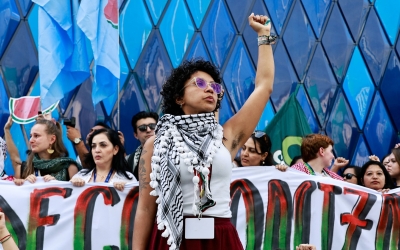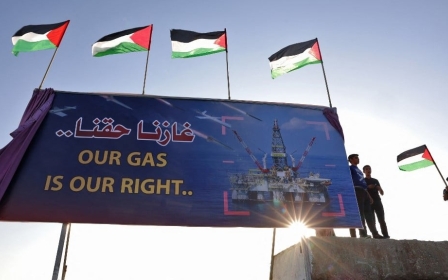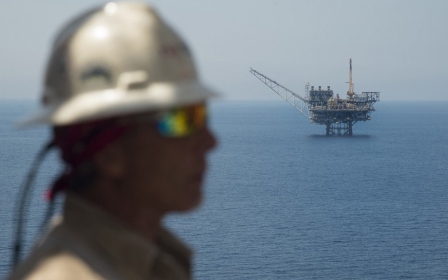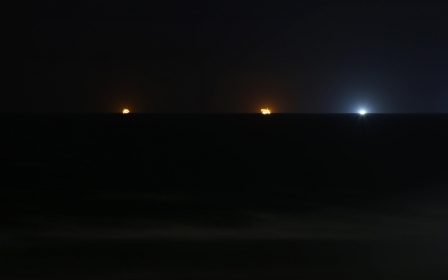War on Gaza: Palestinian coalition calls for 'total energy embargo' on Israel
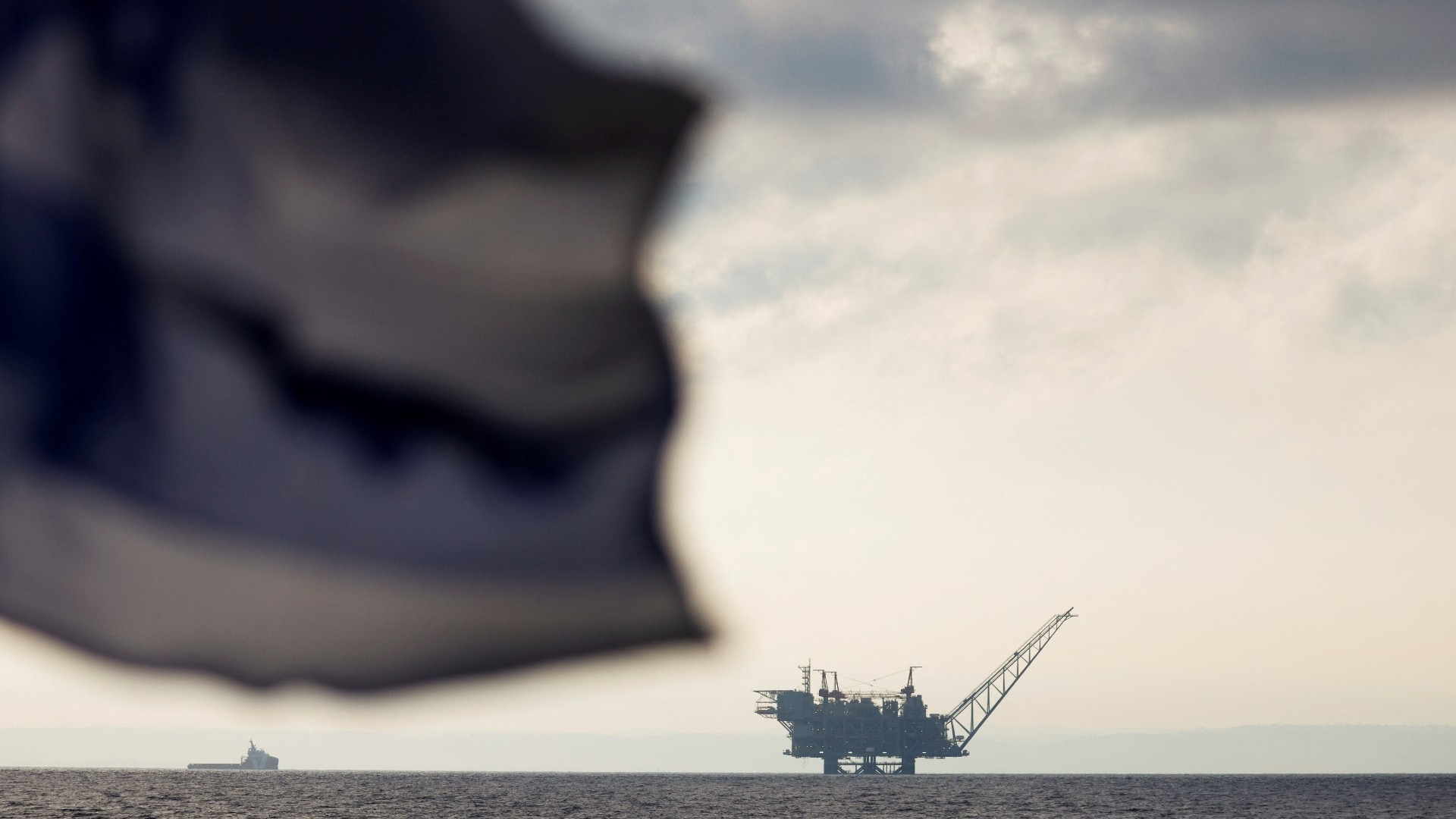
A coalition of Palestinian organisations has called for a "total energy embargo" on Israel until it halts its war on the Gaza Strip.
Launched on Monday, the Global Energy Embargo has called for organisations, workers and environmental activists to stop all energy exports to Israel until it puts an end to "the genocide and its regime of apartheid and ethnic cleansing against the Palestinian people".
The campaign is working with a team of researchers to analyse energy flows to Israel and identify choke points in its supply chain.
In addition to halting fuel imports, the coalition is also demanding an end to Israeli gas exports to Europe.
Citing Israel's "continuing impunity" following the International Court of Justice's (ICJ) ruling to proceed with South Africa’s case charging the country with genocide, a coalition spokesperson told Middle East Eye: "We’re currently at a time where it takes more than just an ICJ ruling to actually enforce the kind of measures we need."
New MEE newsletter: Jerusalem Dispatch
Sign up to get the latest insights and analysis on Israel-Palestine, alongside Turkey Unpacked and other MEE newsletters
The campaign builds on previous calls from the Palestinian General Federation of Trade Unions (PGFTU) to stop arming Israel.
Energy embargo from below
Israel, with almost no domestic crude oil production, last year imported around 300,000 barrels per day of crude.
Israel’s biggest source of oil is from Azerbaijan, with $300m imported in January. The crude exports are shipped from Turkey's Mediterranean port of Ceyhan.
"At a state level, there are concerns around the infeasibility of an energy embargo because of the way the US would support supply in other areas," Charlotte Rose, a researcher from the campaign group Disrupt Power, a member of the coalition, told MEE.
"But what we are trying to show through research and work with different movements… is what that can look like from below."
The coalition is working with an expanding global network of workers and campaign groups to target fuel exports to Israel, including mine workers in Colombia, the largest exporter of coal to Israel.
In a statement, the workers highlighted the link between the export of metals, minerals and fuels to Israel and Israel’s role in providing training and equipment to paramilitaries responsible for murdering trade unionists.
In the US, the coalition has connected with the campaign group, Chevron out of Palestine, who staged a 500-strong rally outside the company's refinery.
According to the Boycott, Divestment and Sanctions movement, the fossil fuel giant is the "main international actor extracting fossil gas claimed by Israel in the Eastern Mediterranean."
EU complicity
The coalition is also working with journalists and climate groups in Europe to raise awareness around Israeli gas exports into the EU, which has become a major importer of Israeli gas to plug shortages left after the Russian invasion of Ukraine.
Following the stalled construction of the Eastern Mediterranean Pipeline, which would connect the EU gas network with reserves in the Eastern Mediterranean, including some in offshore Israel, the EU turned to shipping Israeli gas from Egyptian terminals.
The imports have continued through Israel’s ongoing assault on Gaza, with Bloomberg reporting that two liquified natural gas (LNG) vessels left Egypt and docked in Belgium and Italy in October.
"The EU was receiving gas through the genocide," Rose told MEE.
"This is through a series of pipeline infrastructures that have been set up over the last decade between Egypt and Israel and then transported to [European terminals]."
In June 2022, the EU, Egypt and Israel signed a Memorandum of Understanding to allow "significant" exports of Israeli gas to Europe and to encourage EU companies to invest in Israeli gas fields.
'The EU was receiving gas through the genocide'
Charlotte Rose, Researcher, Disrupt Power
In 2023, Israel awarded gas exploration licences to Italy’s Eni, British Petroleum and Dana Petroleum to explore for natural gas off the country’s Mediterranean coast.
"Without this kind of support and without this idea of Israel becoming a form of diversification for the EU gas problem. It wouldn't really have political and financial power that it does," Rose told MEE.
"The EU movement is really behind on that, whether it’s the climate movement or other social movements.
"That’s why we started doing this scoping exercise and mobilising to push groups to be more vocal on this."
This article is available in French on Middle East Eye French edition.
Middle East Eye delivers independent and unrivalled coverage and analysis of the Middle East, North Africa and beyond. To learn more about republishing this content and the associated fees, please fill out this form. More about MEE can be found here.


